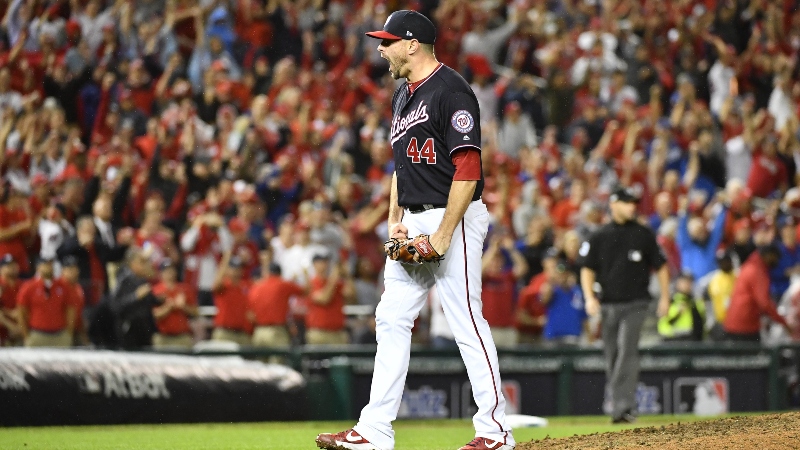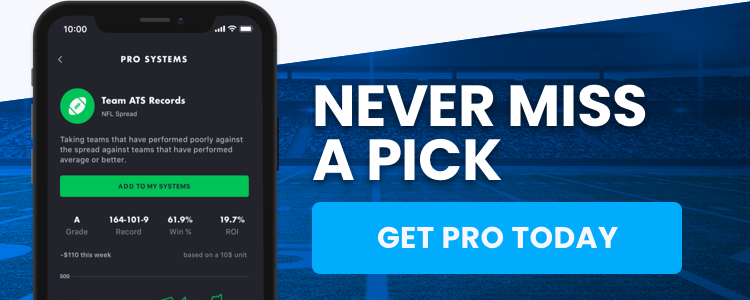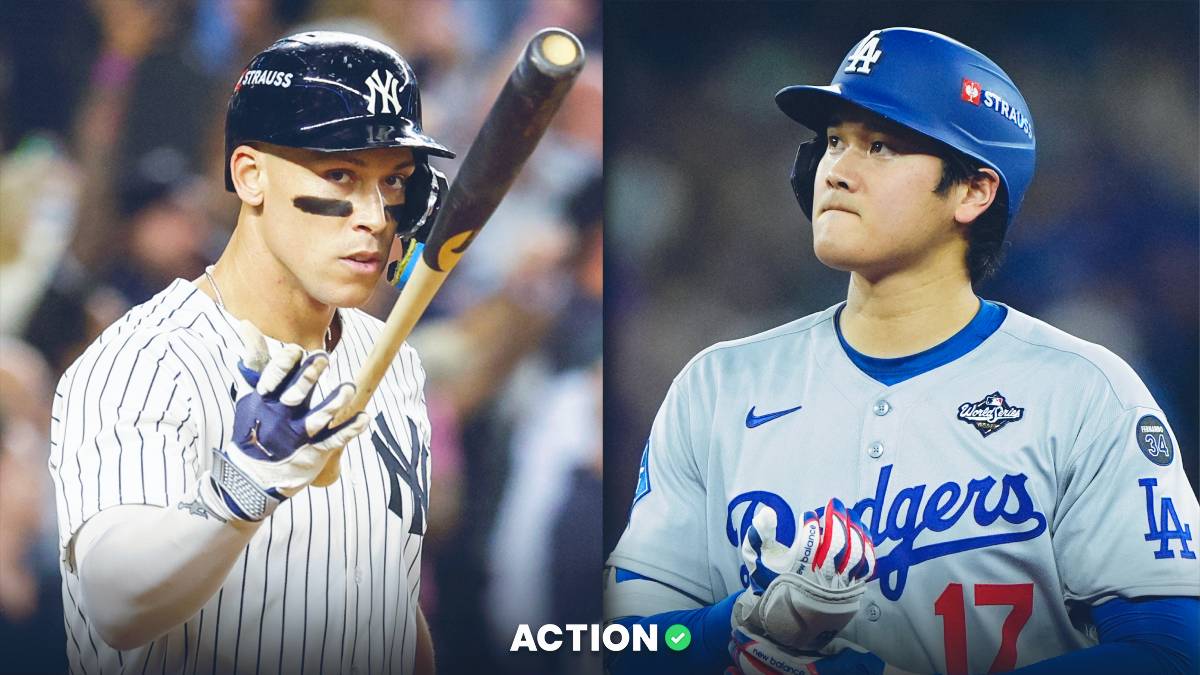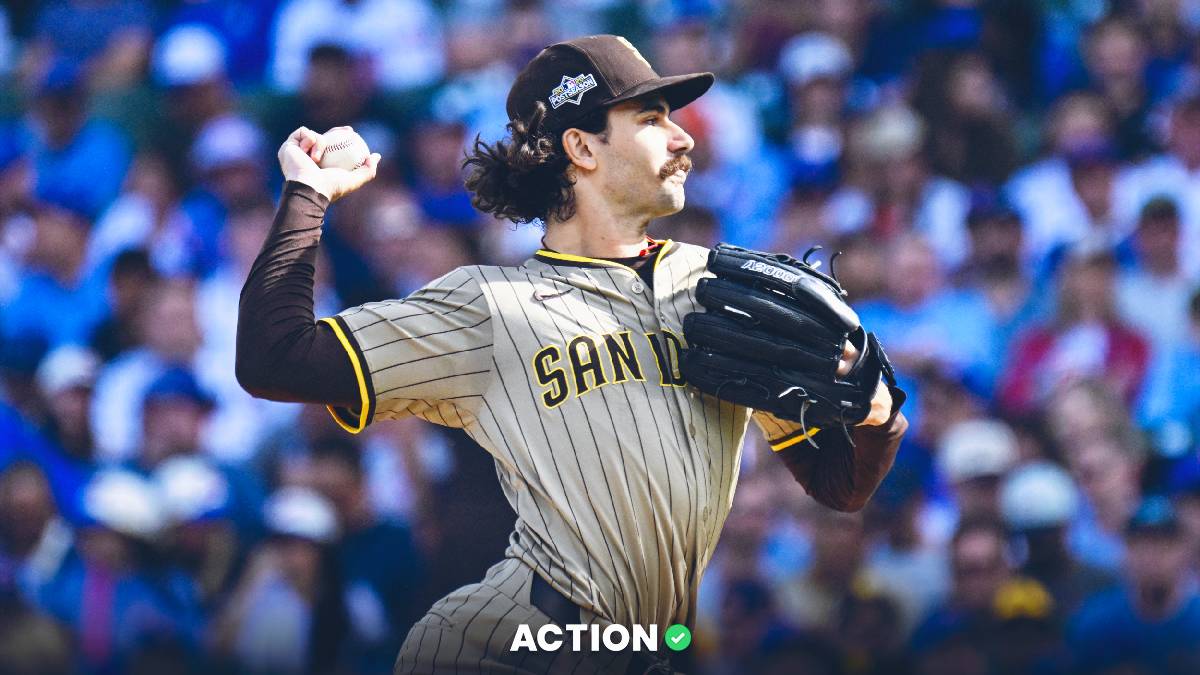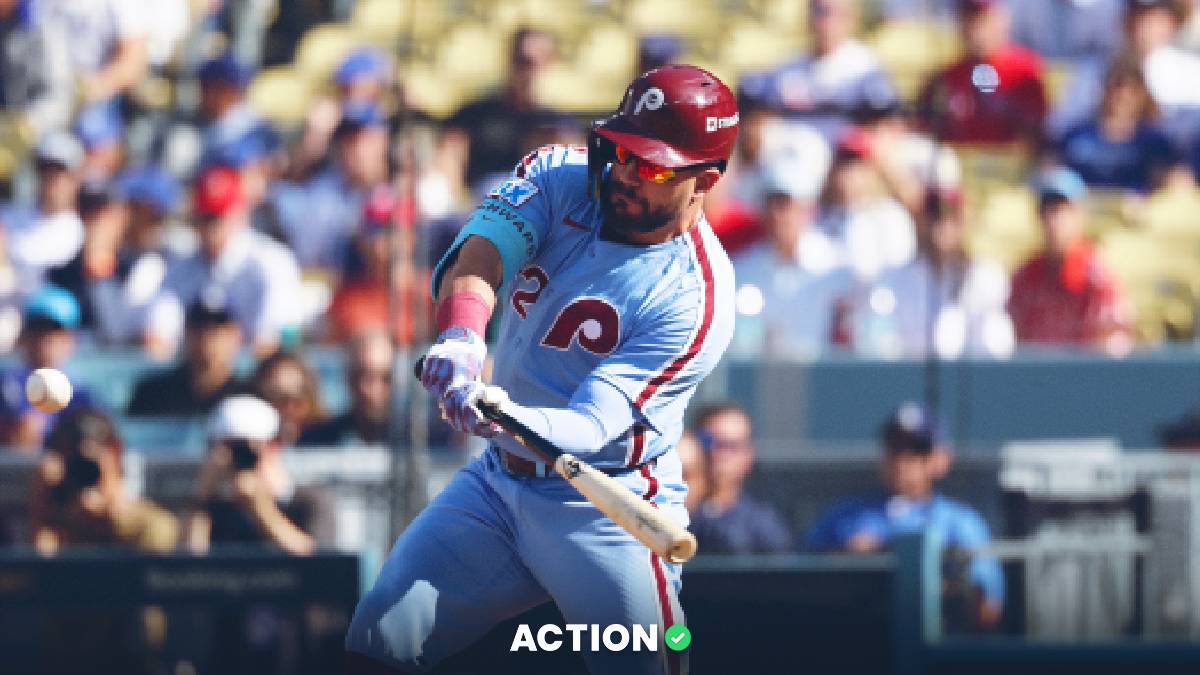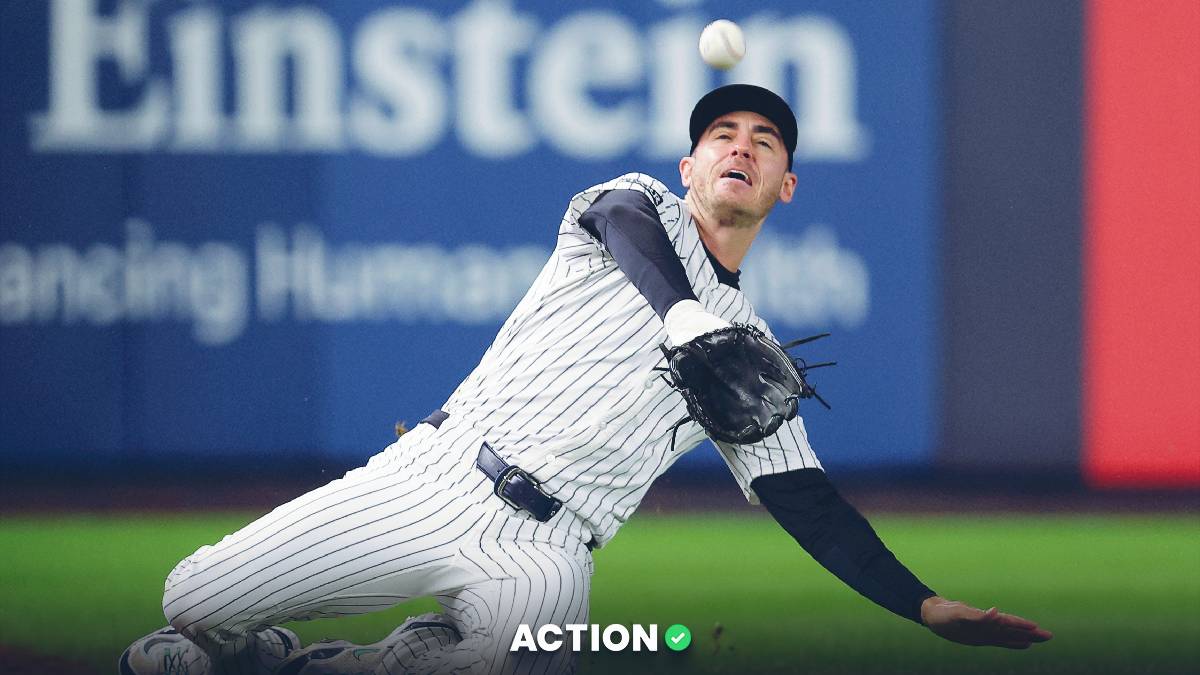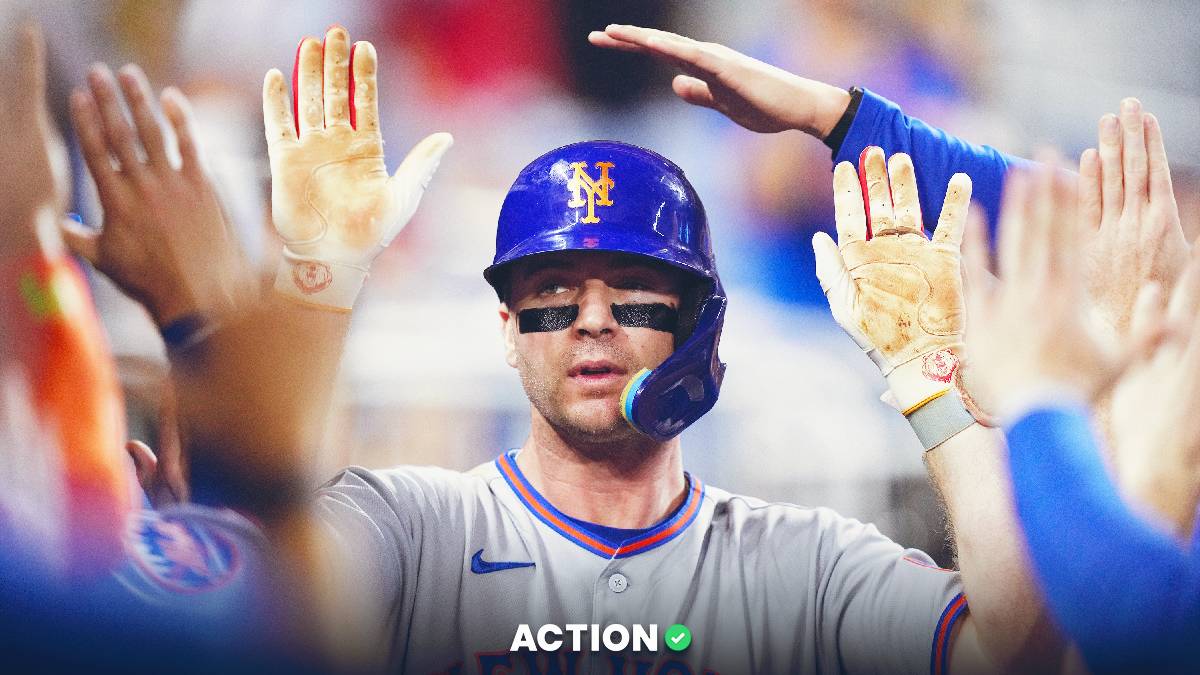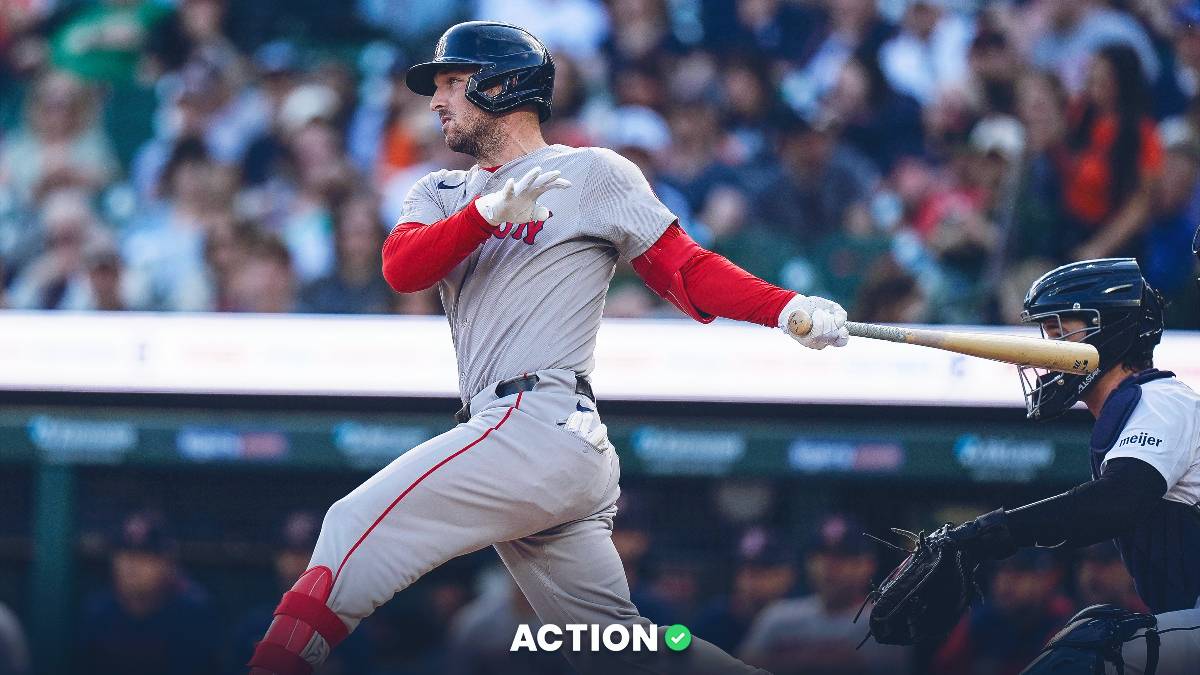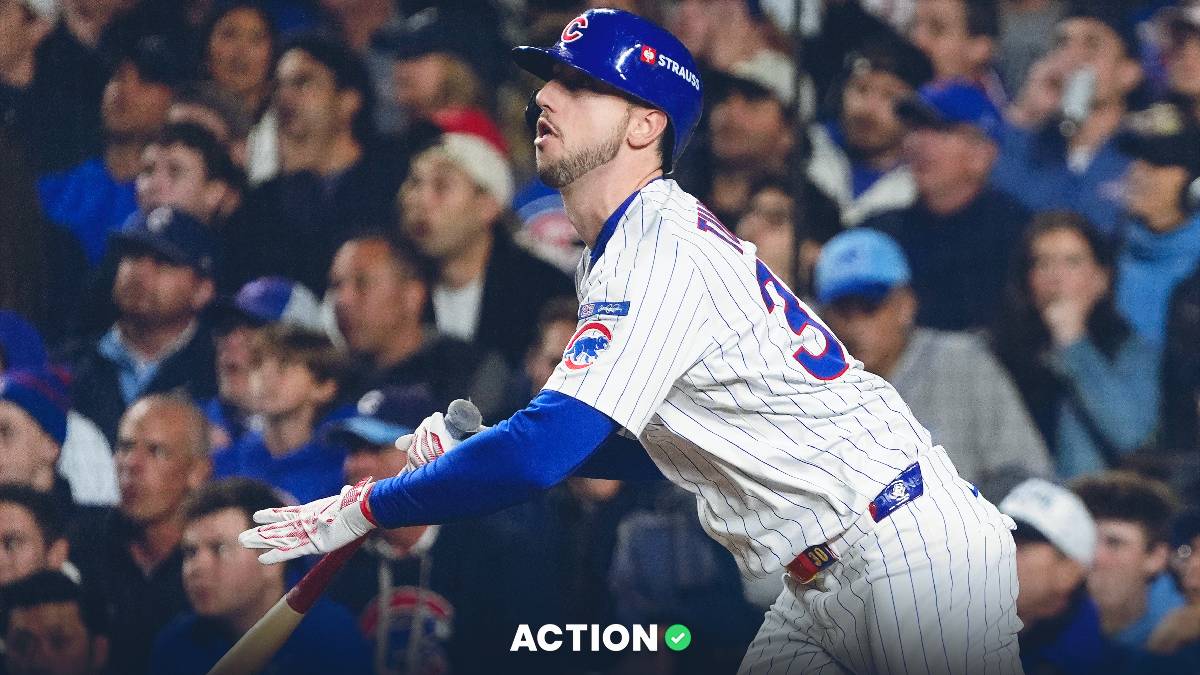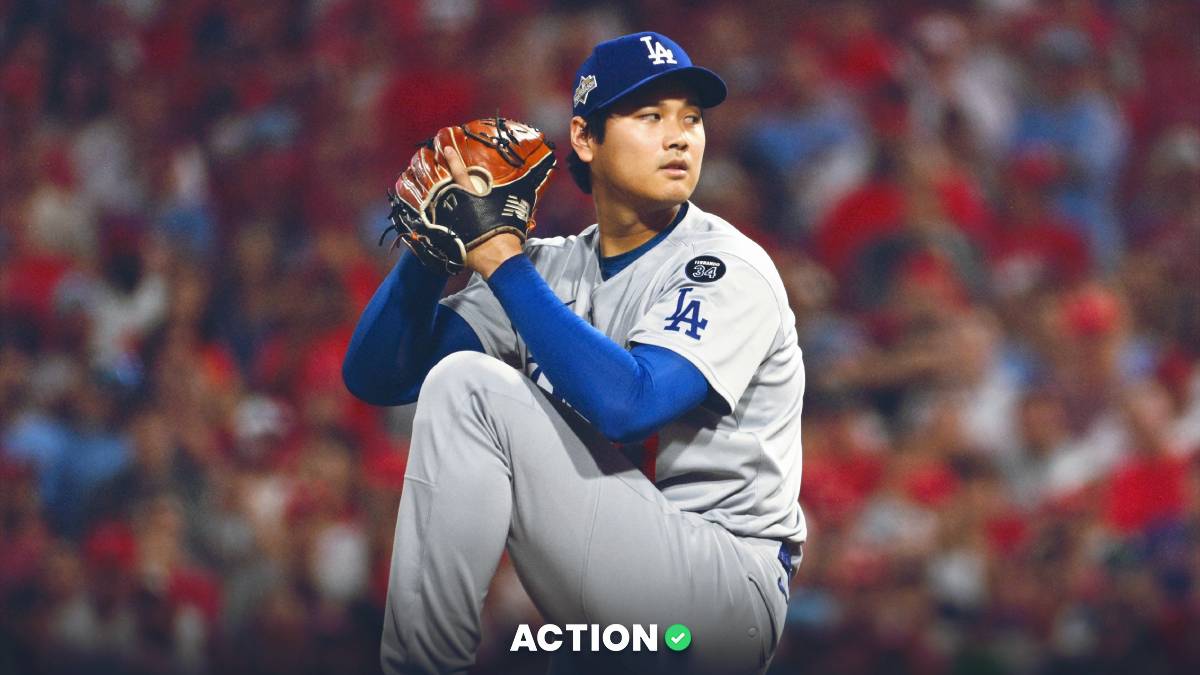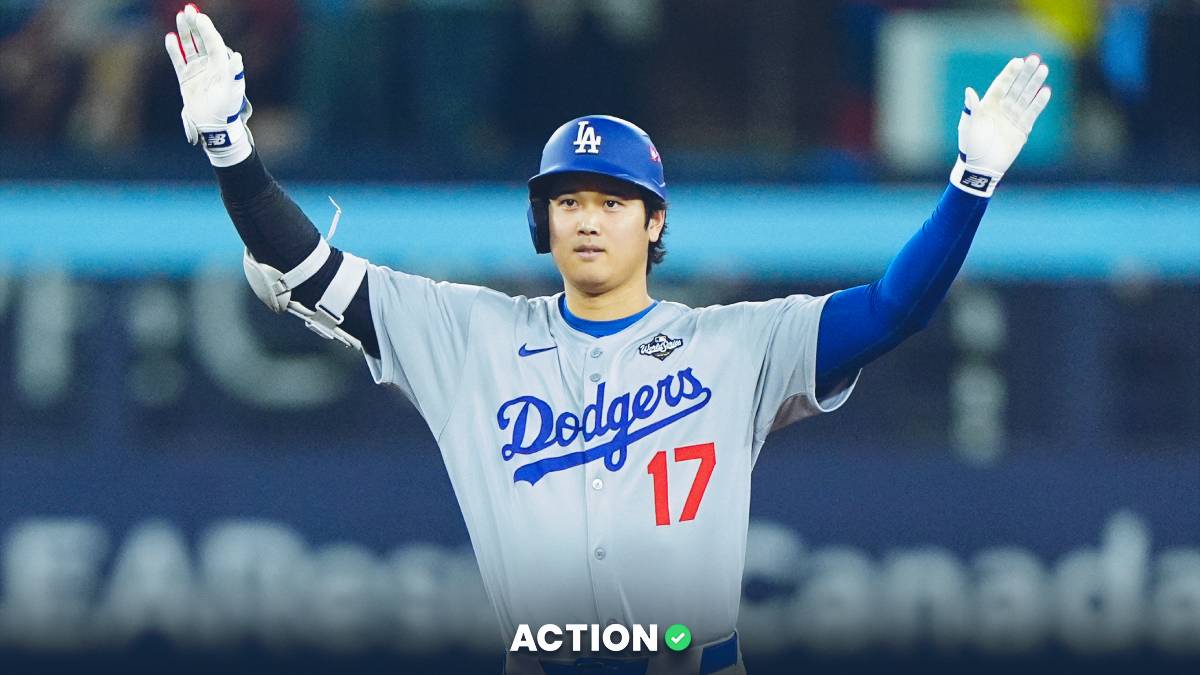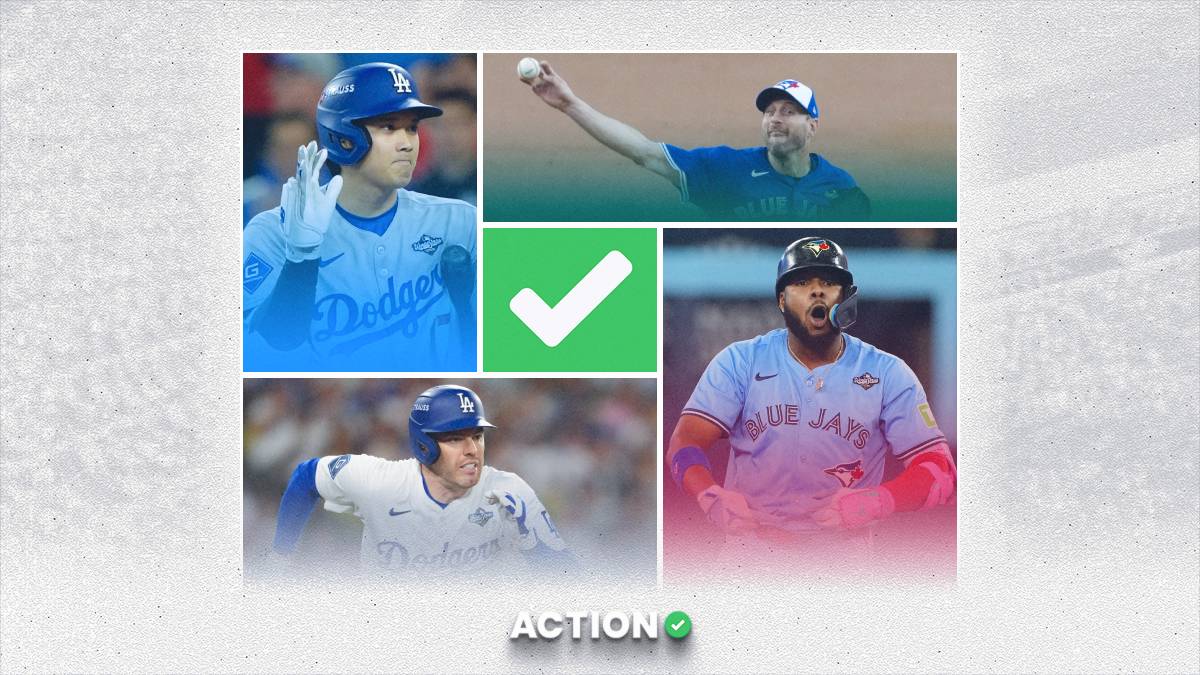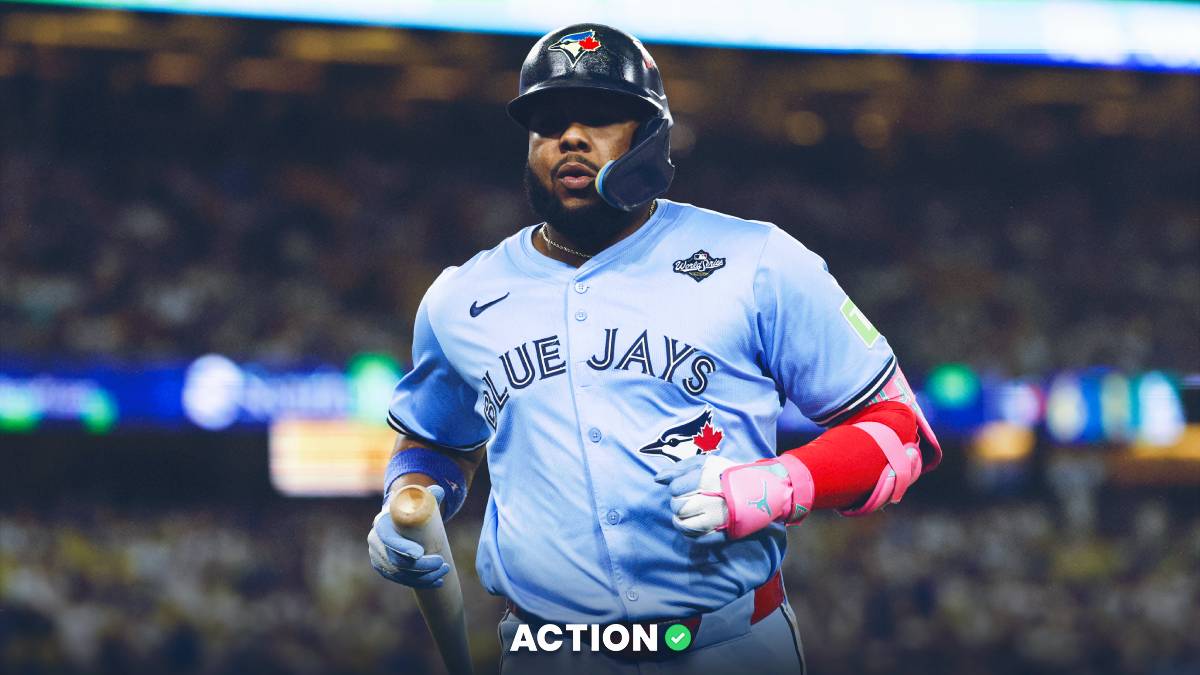Cardinals vs. Braves Betting Picks, Odds & Predictions for Game 5
Probable starters: Jack Flaherty (11-8, 2.75 ERA) vs. Mike Foltynewicz (8-6, 4.54 ERA)
- Cardinals odds: -112
- Braves odds: -102
- Over/Under: 8
- First pitch: 5:02 p.m. ET on TBS
Odds as of Wednesday morning. Check out PointsBet, where Action Network users get an exclusive 200% deposit match (deposit $50, bet with $150).
Game 5 is almost an exact rematch from Game 2 of this series, with Jack Flaherty facing Mike Foltynewicz in Atlanta.
The Braves won that game at home, 3-0, as a +103 underdog behind seven shutout innings from Foltynewicz.
It was a 1-0 game until the seventh inning when an overcooked Flaherty allowed a two-run homer to Adam Duvall, but it was also the only game in this series that ended without drama.
The Cardinals rallied for late wins against the Braves bullpen in Games 1 and 4 but lost a 1-0 lead with three outs to go in Game 3.
Fourteen runs were scored in the eighth inning or later in those three come-from-behind wins.
Are more theatrics in store on Wednesday evening, or will one of these starters be able to hang onto an early lead — if they can get it?
The Starters
I previewed both starters before Game 2, and while all of that analysis is still extremely relevant, I don't want to repeat it here in full — so allow me to summarize:
- Both were dominant down the stretch, with Flaherty posting a 0.91 ERA after the All-Star break, and the 2018 All-Star Foltynewicz rebounding from early 2019 struggles and a trip to the minors to record a 2.65 ERA over his final 10 starts.
- Foltynewicz is losing fastball velocity, so he has started throwing more sinkers, and fewer four-seam fastballs. He had difficulty locating his slider and other secondary offerings early in the year but refined his mechanics during his stint in the minors.
- Flaherty is gaining velocity, leading to increased effectiveness between his two fastballs and dominant slider, and a positive trend in his K/BB ratio. His dominant second half is confirmed by a 2.22 FIP (4th in MLB) and a 3.19 xFIP.
Foltynewicz threw 20 two-seam fastballs, seven four-seam fastballs, five changeups, nine curveballs, and a whopping 40 sliders in Game 2.
The slider was no doubt useful, generating 10 of Folty's 13 swinging strikes, but I also feel like the Cardinals missed some mistakes.
For example, they swung at six sliders that were located in the zone, and missed four times:
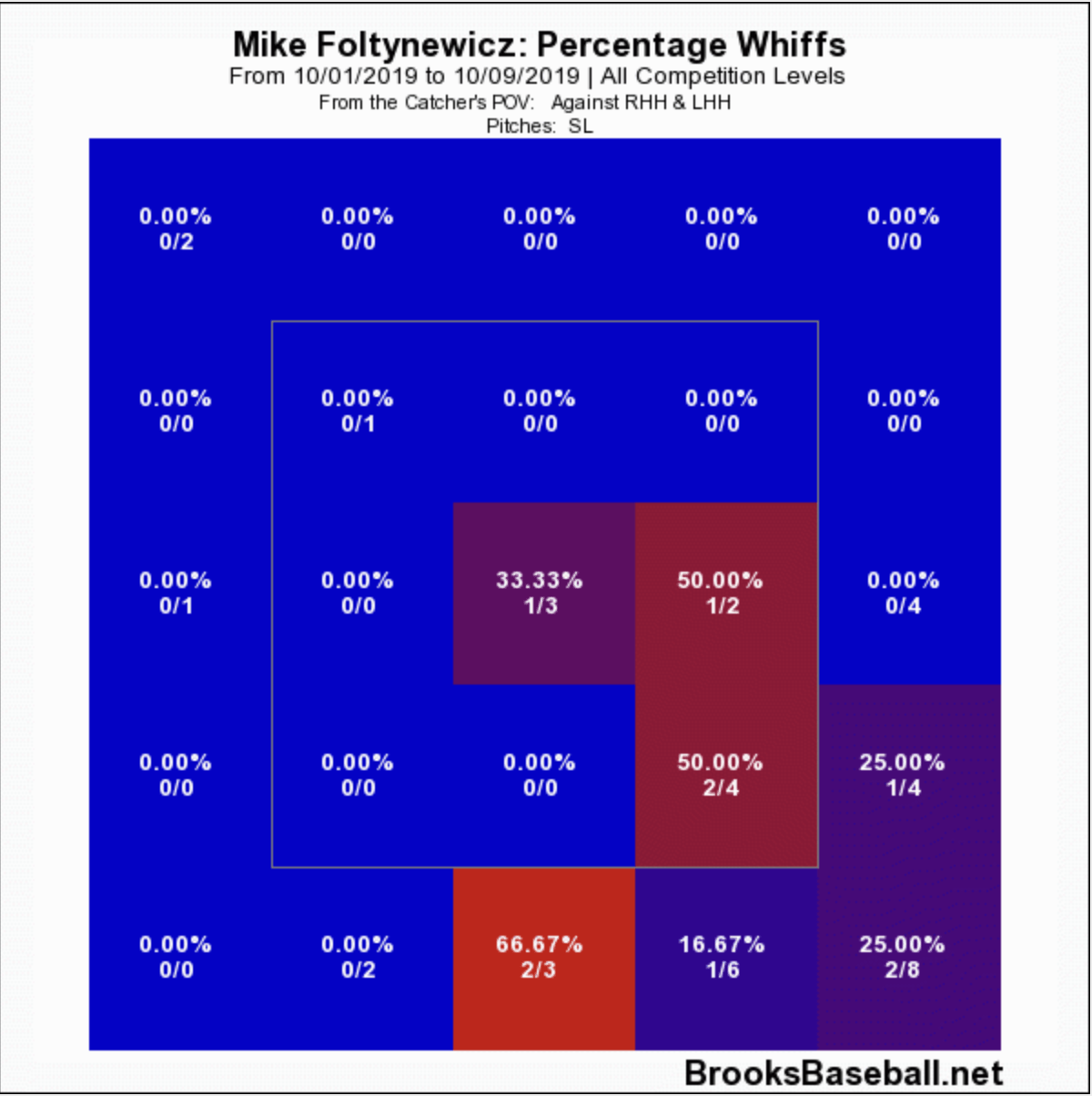
This pitch has good late movement, but it's still hanging right over the heart of the plate as Foltynewicz misses his target:
Folty, Nasty 85mph Slider. 😨 pic.twitter.com/ayHAOVEFED
— Rob Friedman (@PitchingNinja) October 4, 2019
Paul Goldschmidt probably wants that one back.
The Cardinals were also far too patient against Foltynewicz, permitting 18 called strikes, and I expect a more aggressive approach from their offense on Wednesday.
Jack Flaherty displayed heavy slider usage in Game 2, going to the offering 49 times out of his 117 pitches (41.8%). He generated 23 swinging strikes, with 16 by way of the slider.
He even committed some pitcher-on-pitcher crime against Folty:
Jack Flaherty, Filthy 86mph Slider. 😷
Folty. 😂 pic.twitter.com/I9BMVHtsEV
— Rob Friedman (@PitchingNinja) October 4, 2019
Most projection systems show Flaherty as a pitcher who is a full run better than Foltynewicz, but the latter is coming off of the shutout victory at home and might be a bit overvalued here.
I'll back the younger pitcher who has been trending toward ace territory:
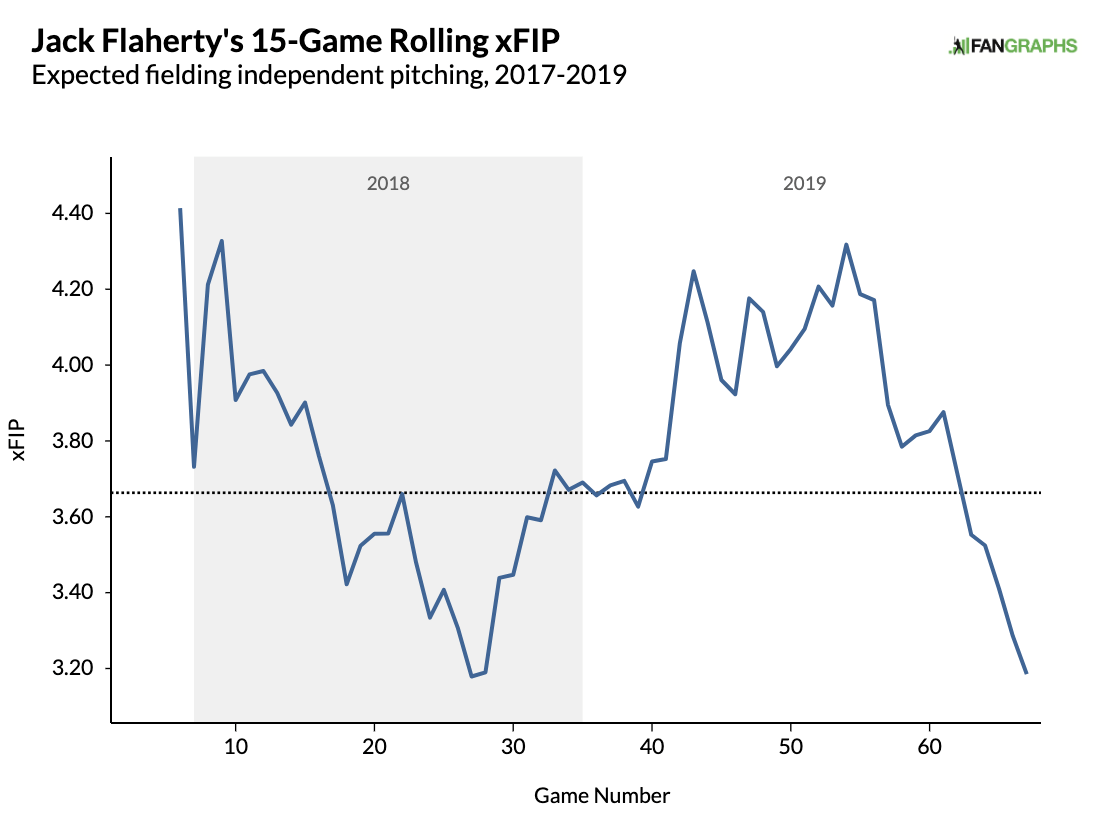
The Bullpens
On the season, the Braves bullpen ranks 14th in FIP, 16th in xFIP, and 17th in K-BB%. By the same metrics, the Cardinals rank 11th, 12th, and 15th.
Other than Game 4 starters Dakota Hudson and Dallas Keuchel, every pitcher on both staffs should be available in this deciding game.
That includes Game 3 starter Adam Wainwright for the Cardinals, and both Max Fried and Mark Melancon for the Braves, who have each had a couple of days off after pitching in Games 1-3.
Pitchers who threw in both Games 3 and 4 include Sean Newcomb and Darren O'Day for Atlanta, and Carlos Martinez and Andrew Miller for St. Louis.
Martinez got into trouble for his third straight appearance but finally bailed himself out. He makes any ninth-inning interesting to watch.
One arm who has impressed for St. Louis is Ryan Helsley, who offers a blazing fastball out of the bullpen:
Helsley and Giovanny Gallegos might be the Cardinals' two most reliable relief arms at present.
The only pitcher I am unsure about is Mike Soroka, who started Game 3 for the Braves, but Atlanta might be reluctant to use their prized young arm on two days worth of rest — even in an elimination game.
Projected Lineups
Data per FantasyLabs
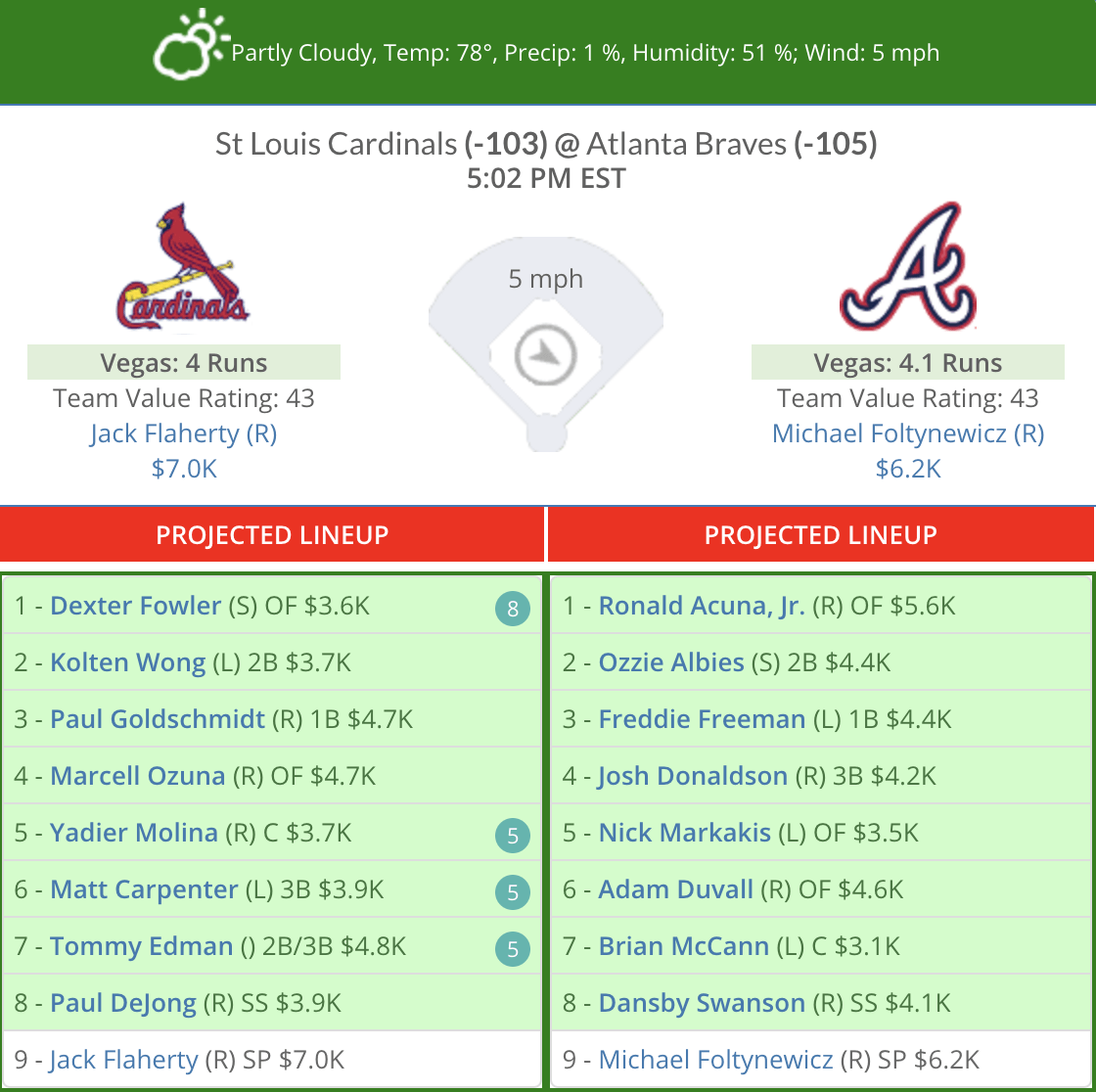
Umpire and Weather Report
Data per Sports Insights
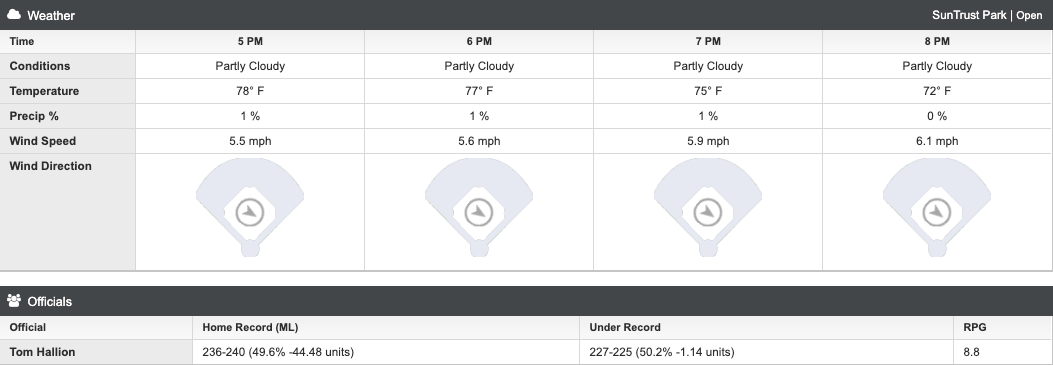
Tom Hallion is the plate umpire for Game 5. He has a neutral history with regards to totals (50.4%), including a 2-3-1 record (to the under) in the postseason.
However, Hallion does seem to prefer road teams, who have a 236-234 record (50.2%) in his career, defying home-field advantage and generating a consistent $100 bettor +$2,405.
Road underdogs are 137-171 (44.5%) with Hallion behind the dish, generating a profit of +$1,291, so consider that if the Braves flip from a dog to favorite.
Trends to Know
For Game 5 situations in previous Divisional Series matchups (dating back to 2005), the visiting team is 11-6, underdogs are 10-7, and the under is 9-6-2.
SunTrust Park has favored under bettors to a degree, with a 123-110-13 record (52.8%).
The Braves are 35-41 (46.1%) as a home underdog at SunTrust park, generating a consistent $100 bettor $261.
The Cardinals are 19-14 (57.6%) as a road favorite this season, and Jack Flaherty is 29-19-13 (60.4%) on the F5 moneyline over the past two years.
Model Projected Odds
Favorite Bet
I projected the Cardinals as a -106 favorite in this game, and I set the total at 9.4 runs. I don't see any value on the moneyline currently, but I do see some value on the over and played over 8 (-110).
Additionally, more than 60% of the tickets and 80% of the cash being bet on the total has come in on the under, following that 3-0 Game 2 final, but Wednesday's total hasn't moved off of 8. If anything, the vig has moved toward the over.
After some early Braves money, I played a half unit on the Cardinals full game moneyline at -106, and a half unit on the Cardinals F5 moneyline at -103; prices either in line with or below where they closed in Game 2.
Sitting on Cardinals futures for the NL pennant and World Series, I can't go too heavy on this game – but I do think that the Redbirds are the recommended play at any price better than my projection.
The over also looks to be the contrarian side, but I do have concerns about some early evening shadows impacting the batters.
Instead, maybe look to play a live over as the sun goes down.
Dodgers vs. Nationals Betting Picks, Odds & Predictions for Game 5
Probable starters: Stephen Strasburg (18-6 3.32 ERA) vs. Walker Buehler (14-4, 3.26 ERA)
- Dodgers odds: +146
- Nationals odds: -168
- Over/Under: 7
- First pitch: 8:37 p.m. ET on TBS
Odds as of Wednesday morning and via PointsBet, where Action Network users get an exclusive 200% deposit match (deposit $50, bet with $150).
The Nationals and Dodgers meet on Wednesday night in a deciding Game 5, with Los Angeles hoping to advance to their fourth consecutive NLCS, while the Nats look to position themselves one stage away from the World Series for the first time since 1981, when they were the Montreal Expos.
Compared to a rollicking Braves-Cardinals NLDS, this series hasn't been nearly as dramatic.
Save for Game 3, there has only been one lead change in this series – but the outcome of Game 3 still hovers over Game 5.
In that 10-4 Dodgers win, the Nationals held a 2-1 lead in the top of the seventh inning when they brought Patrick Corbin in to pitch after two days of rest.
The lefty was subsequently shelled for six runs in two-thirds of an inning – and I can't imagine the Nationals deploying him tonight for the third time in five days.
Meanwhile, the Dodgers should have a tandem of aces on the mound on Wednesday with Clayton Kershaw available in relief behind Walker Buehler.
But now that he's back on regular rest after his Game 2 win can Stephen Strasburg defeat the Dodgers' two best arms, win his second game of the series, and help the Nationals upend the NL favorite?
The Starters
Despite the Nationals playoff struggles, Stephen Strasburg has been dominant in the postseason with a 0.64 ERA and a 38:4 strikeout-to-walk ratio over four starts, five appearances, and 28 innings.
Between the NL Wild Card Game and Game 2 of this series, Strasburg essentially threw a 119 pitch complete game – 9 IP, 5 H, 1 R, 0 BB, 14 K – while recording two wins.
Before Game 2, I highlighted Strasburg's new approach this year – which involved fewer four-seam fastballs in exchange for additional two-seam fastballs and curveballs.
Between the new pitch mix and his staying healthy, this is arguably a career year for the 31-year-old righty as he likely heads to free agency.
Strasburg threw a curveball on 34 of his 85 pitches in Game 2, recording nine of his 13 swinging strikes.
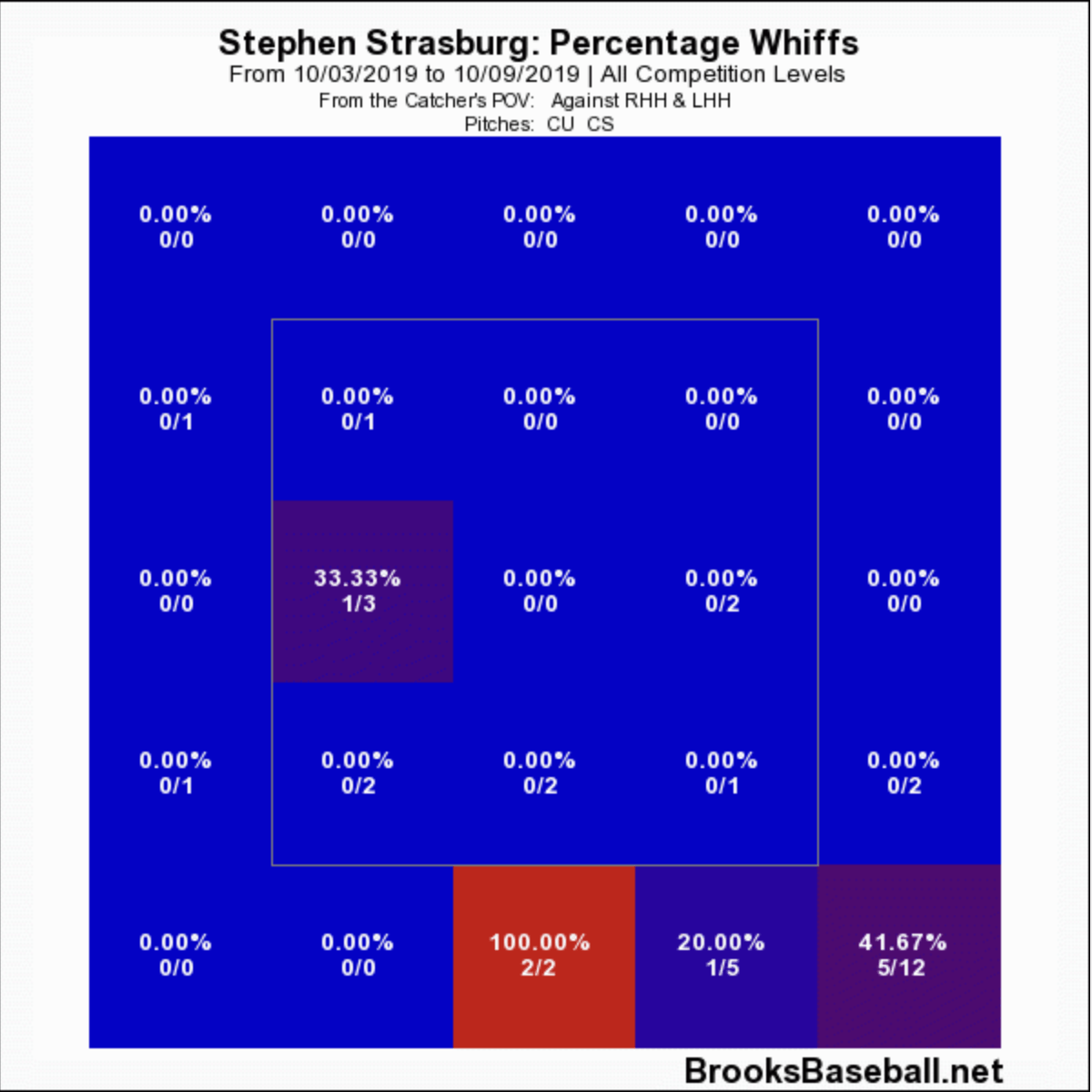
As my colleague Stuckey has pointed out, Strasburg also owns some reverse splits this year, with a lower wOBA against righties (.251) than vs. lefties (.276).
It's a wonder that the Dodgers keep stacking so many left-handed bats against him when they should probably play their best overall lineup.
For Strasburg's career, the splits are a dead heat, with a .276 wOBA to either handedness.
That's probably a result of his terrific changeup, which has helped to maintain his overall effectiveness despite experiencing a velocity drop by more than three mph since his 2010 debut.
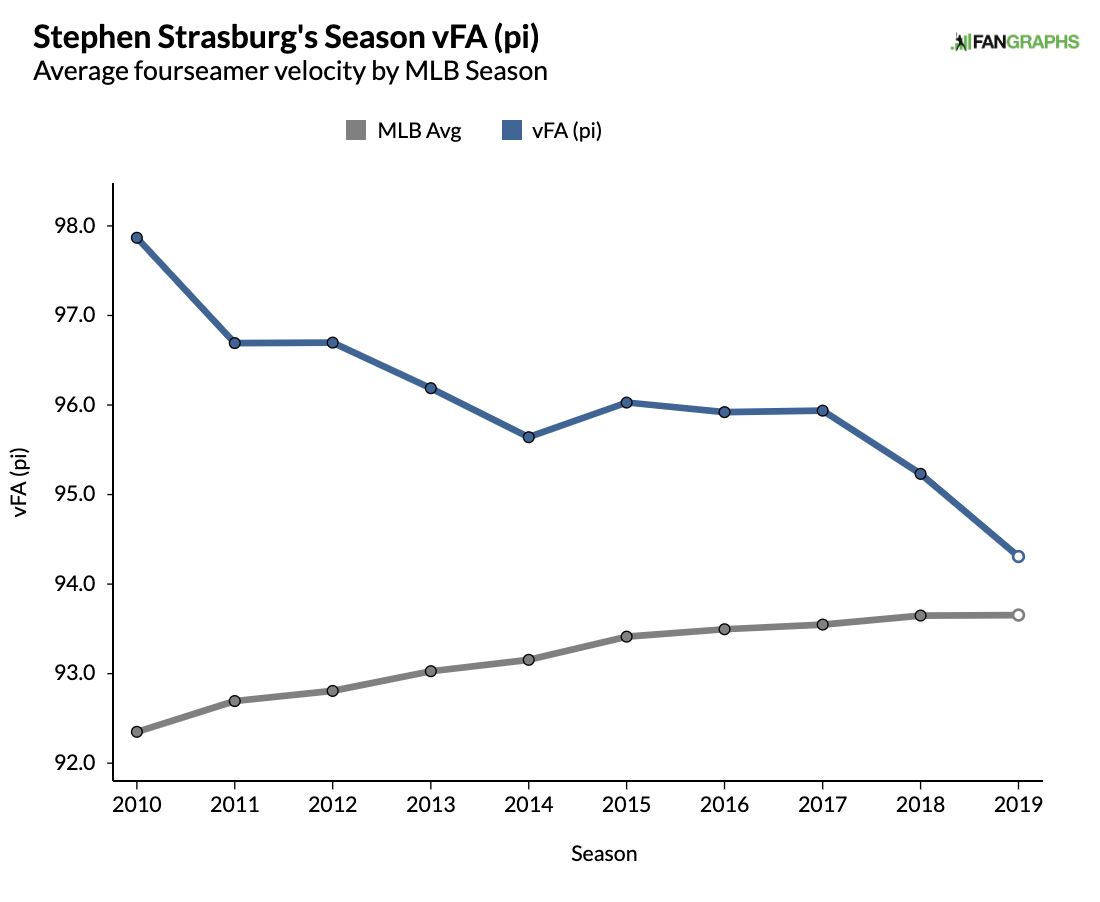
All pitchers lose velocity over time, but the great ones, like Strasburg, figure out how to adjust their approach. A plus changeup, if sequenced properly with a fastball, helps both pitches to play up no matter the velocity.
Stephen Strasburg, 94mph Fastball, 88mph Changeup and 84mph Curveball, Overlay (synced at release). pic.twitter.com/w5vtaD90pw
— Rob Friedman (@PitchingNinja) October 5, 2019
Walker Buehler will take the mound for the Dodgers on five days rest after recording eight strikeouts over six shutout innings in game one. He allowed just four baserunners in yet another dominant start at Dodger Stadium.
Before game 1, I discussed Buehler's dramatic home/road splits, in addition to his odd cutter/slider combination.
But he also featured a more traditional high fastball/ low curveball look, which is extremely dominant due to their spin rates:
Buehler ranks in the 93rd percentile in fastball spin rate and 96th percentile in curveball spin rate; and both offerings generate a high number of whiffs.
Walker Buehler, 97mph Fastball (foul) and 83mph Knuckle Curve (swinging K), Overlay. pic.twitter.com/UELOJMzOH2
— Rob Friedman (@PitchingNinja) October 4, 2019
With a sub 2.00 ERA at home, Buehler hasn't needed much pitching help behind him this year, but on Wednesday, the Dodgers will have everyone available in an elimination game.
Including Clayton Kershaw.
The Bullpens
On the season, the Dodgers bullpen ranks sixth in FIP, seventh in xFIP, and fifth in K-BB%. By the same metrics, the Nationals rank 26th, 29th, and 23rd.
The Dodgers used both Julio Urias (29 pitches) and Kenta Maeda (25 pitches) in Games 3 and 4, while the Nationals did not use a pitcher on back-to-back days in this series.
Maeda and lefty specialist Adam Kolarek, have each pitched in three out of the four games, but Kolarek has only thrown 18 pitches in total.
In any close contest, I would expect Clayton Kershaw to enter the game.
He has been effective in three relief pitching appearances over the past three postseasons:
- 2018: A clean ninth inning in Game 7 of the NLCS against the Brewers
- 2017: Four innings of shutout relief in Game 7 of the World Series against the Astros
- 2016: A two-out save in Game 5 of the NLDS in Washington
In the Game 2 preview, I noted both Kershaw's declining fastball velocity and usage, in addition to the fact that the gap between his fielding independent metrics and their league average equivalent have not been closer in about 10 years.
He has responded by increasing his slider usage over time, to the point where it's now nearly a 50/50 split with the fastball usage over two years.
More than 50 of his 99 pitches in Game 3 were sliders, generating 13 swinging strikes against four bases allowed – all of which were left at the middle-in quadrant for right-handed hitters; where he produced one whiff but permitted three hits.
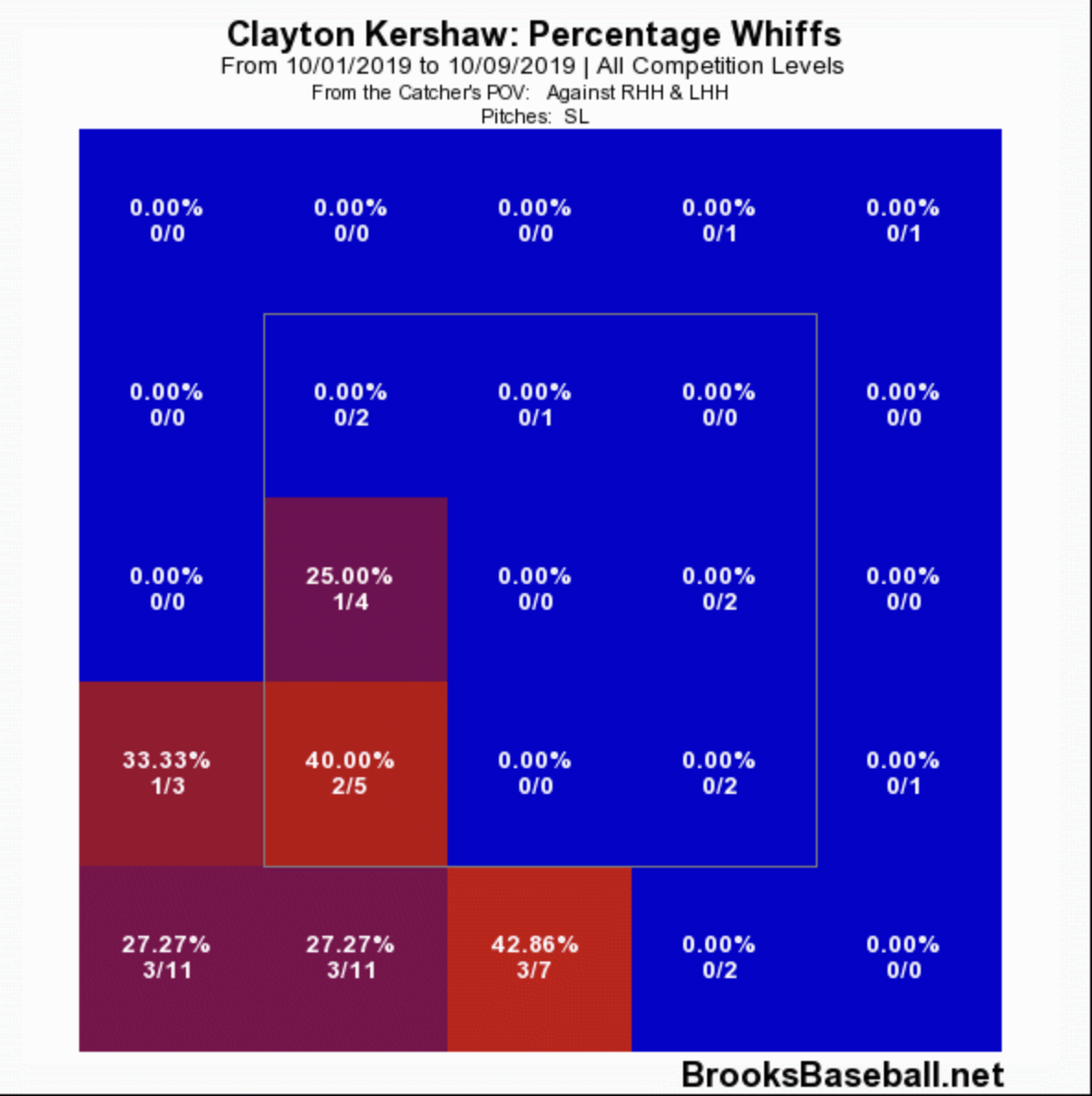
Who knows what the Nationals have in store, relief-wise for tonight.
Their preferred plan is Strasburg for seven innings, followed by Sean Doolittle and Daniel Hudson – but this Nationals bullpen, which entered the playoffs with the worst ERA for a playoff bullpen ever, has yet to rear its ugly head at the wrong time as it did so many times during the regular season.
The Dodgers might be worth a live look in a tight game if Strasburg is out before completing six innings.
Projected Lineups
Data per FantasyLabs
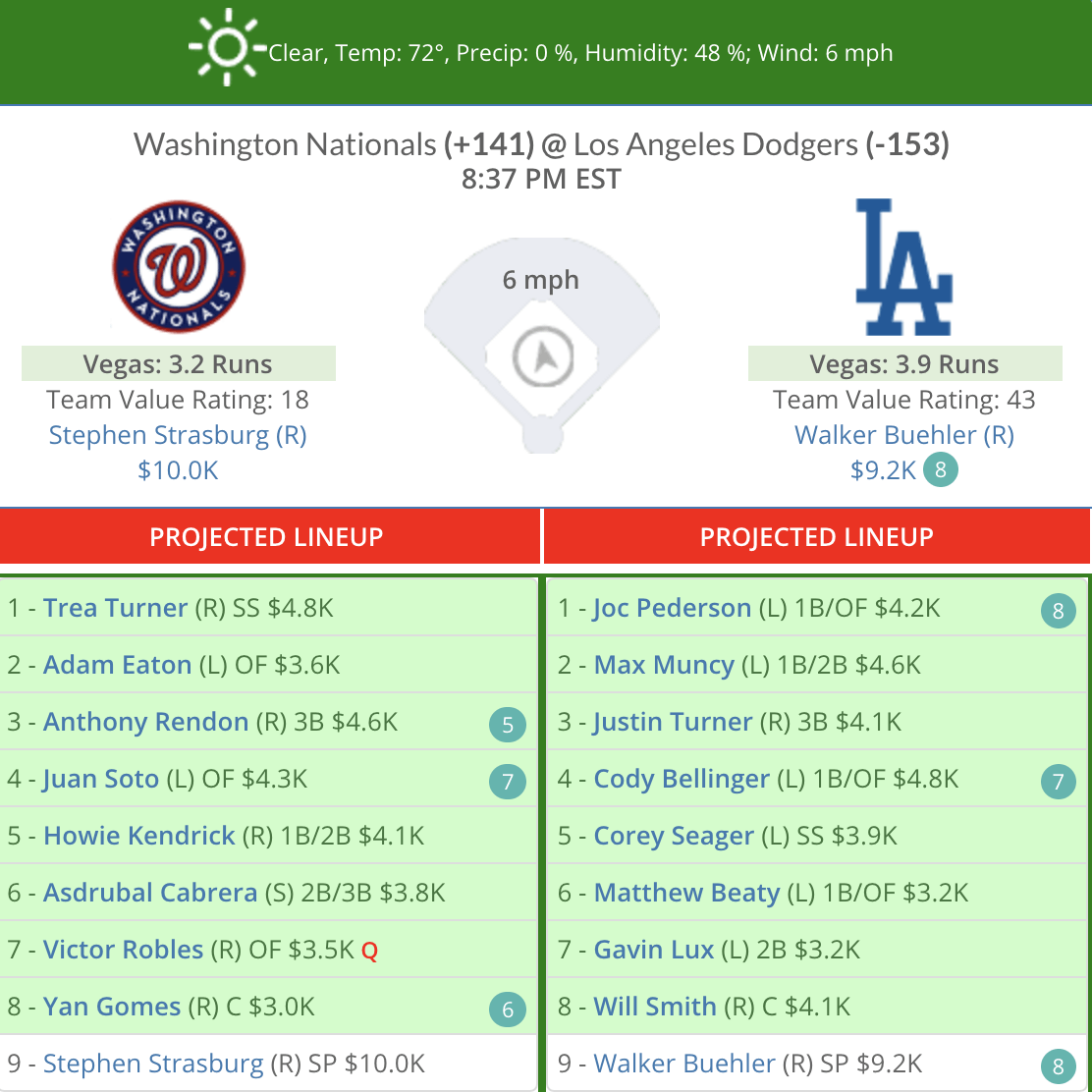
Umpire and Weather Report
Data per Sports Insights
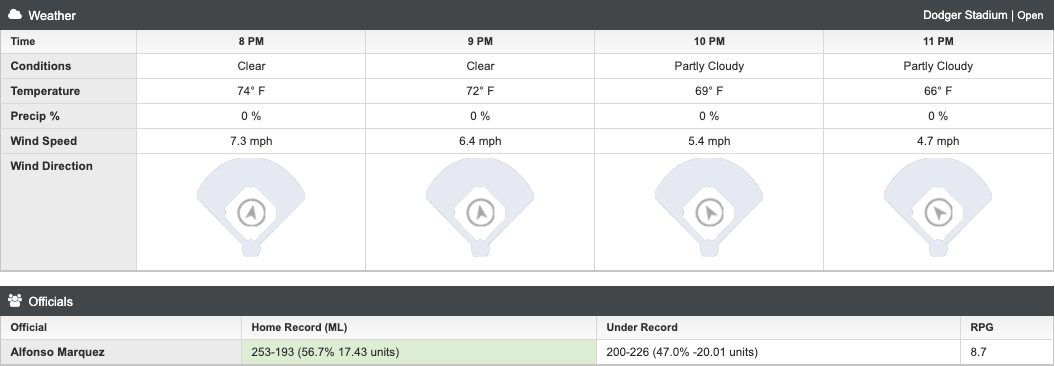
Alfonso Marquez is the plate umpire for Game 5. He has a slight lean to the Over (52.9%), including seven overs in his eight postseason games behind the dish since 2005.
Marquez generally prefers home teams (56.6%) and specifically home underdogs – who are 75-71 (51.4%) with Marquez behind the plate; generating a consistent $100 bettor $2,017 (13.8% ROI).
Home favorites are 177-122 (59.2%) under the watch of Marquez but have not been nearly as profitable as underdogs.
Trends to Know
In previous Game 5 situations of Divisional Series matchups (dating back to 2005), the visiting team is 11-6, underdogs are 10-7, and the under is 9-6-2.
The Nationals are 18-18 as a road underdog this season and 52-52 over the past three years, generating a consistent $100 bettor +$1,302.
Strasburg is 12-9 as a road underdog, including a 4-2 record in 2019.
The Dodgers went 60-23 (72.3%) as a home favorite this year, winning by an average margin of 2.1 runs. but they were just 44-49 (47.3%) against the spread in this spot.
The Nationals were 40-23 (63.5%) as a spread underdog this year, including a 27-16 road record.
Model Projected Odds
Favorite Bet
I projected the Dodgers as a -141 favorite in this game, and I set the total at 7.4 runs. Therefore, I see slight (but not actionable) value on the Nationals and no betting value on the total.
I previously recommended that you bet the Nationals series moneyline before Game 1, and if so, you would have a much better price for tonight (+200) than you will find on the board for Game 5.
Holding that ticket, I'm not extra-incentivized to bet on this game as a standalone – but I do see betting value if you can get +160 or better on the Nats.
That number implies a 38.5% win probability; an expected value gap of three percent from my projection (41.5%).
I like the Nationals significantly more in the first five innings (46%), but so does the market at +125, an implied probability of 44.4%.
I would need to see +130 (43.5%) or higher on Washington to consider betting their F5 moneyline.
Exercise some excruciating patience and wait until closer to first pitch if you're looking to bet the underdog here.
And as I mentioned in the bullpen section, take a look at betting the Dodgers live if Strasburg is out before the end of the sixth inning.


